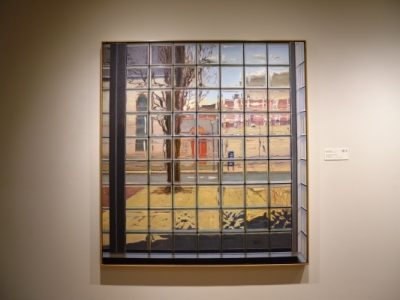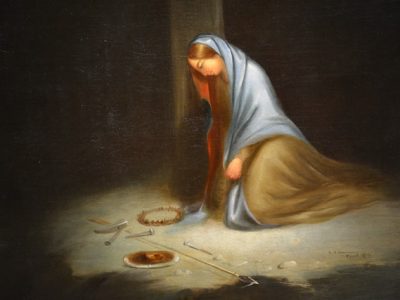
Gilad Shalit
“Then Jesus told them this parable: ‘Suppose one of you has a hundred sheep and loses one of them. Doesn’t he leave the ninety-nine in the open country and go after the lost sheep until he finds it? And when he finds it, he joyfully puts it on his shoulders and goes home. Then he calls his friends and neighbors together and says, ‘Rejoice with me; I have found my lost sheep.’”
Luke 15: 3-7 NIV
This month Christians and Jews, around the world, will celebrate Christmas and Hanukkah, respectively. These holidays share more than divine intervention and historical ties to Israel; they are a time when people gather to reflect on the past, and rejoice in the present, by honoring traditions, giving to loved ones and strangers alike, and by recounting life’s blessings.
It has been quite a year. Worldwide there has been widespread adversity; leaving humanity to suffer physical, financial, emotional, and spiritual hardships, some of which has made the news, and some of which has only made private prayer chains. The bad news has been hard to escape and unfortunately, I know too many people who feel like me – looking forward to a better 2012!
However, in the midst of the continued economic crises, ongoing wars, and health care woes, there has been one outstanding piece of news which should give us all hope. On October 18th, 2011, after having been held for five years, Gilad Shalit, an Israeli soldier, was freed. He was kidnapped on June 25, 2006, by Hamas forces, held in isolation and deprived of the human rights specified by the Geneva Conventions, for prisoners of war.
In exchange for Gilad Shalit’s freedom, 1,027 Palestinian prisoners were granted their freedom. These freed men and women are responsible for the death of 569 Israeli citizens, many with life sentences or multiple life sentences placed on them for their acts of terror. One life for over one thousand; it is hard to fathom. This is not the first time that Israel has exchanged prisoners with the Palestinians, but it is the largest number of prisoners ever exchanged for a single life. Seven thousand Palestinian prisoners have been freed by Israel, since 1981, in order that 27 Israelis citizens, eight of which had been killed, might be returned to their families. He is the first soldier, since 1985, to come home alive in such an exchange.
This case of course captured Israeli attention and sentiment; with the majority of the society having demanded his rescue and release, urging their government to act on his behalf. I have however read wide spread criticism that the cost of his freedom was too high. Released Palestinians have called for Hamas to kidnap other Israeli soldiers, that all Palestinian prisoners may gain their freedom, in the same manner; others have also said that this exchange is a sign of weakness on Israel’s part, a reward to Hamas for their violent deeds that will forever raise the bar on such operations in the future. Yet eighty percent of Israeli society, fully aware of who was released for Gilad’s return, still supports this exchange.
Prime Minister Yitzhak Rabin, who on July 4, 1976, authorized the raid on Entebbe, Israel’s rescue of kidnapped passengers, from Air France Flight 139, who were taken to Uganda; where the hijackers demanded the release of prisoners in exchange for the lives of Jewish civilians, eloquently and succinctly laid down Israel’s policy for dealing with her kidnapped citizens: “When no military option exists, there is no choice but to enter negotiations and pay a price.” A single life has value.
When I saw the photographs of this thin, pale, young man, standing at attention to salute his Commander in Chief, I tried hard to imagine what he must have felt. At that moment, he could not have known the price paid for his freedom, only that those who sent him into harm’s way had not forgotten him. What must it be like to know that in a world filled with insurmountable difficulties, your anguish had mattered sufficiently, to he who was in charge, that he acted on your behalf? What is one life worth?
I have always loved the story of Sodom and Gomorrah, not because of the destruction of the cities or what the people there stood for; but rather because of the exchange between Abraham and the Lord, regarding the righteous and the wicked. Abraham is so brilliantly bold and passionate in his approach, as he pleads with the Lord, asking him to spare the whole place, if fifty righteous men can be found. When Abraham is told that the cities will be spared for fifty righteous people, he continues to push the Lord, asking if it can be spared for forty-five righteous people, and forty, and continues until the Lord agrees to spare the cities for ten righteous people.
“The men turned away and went toward Sodom, but Abraham remained standing before the LORD. Then Abraham approached him and said: ‘Will you sweep away the righteous with the wicked? What if there are fifty righteous people in the city? Will you really sweep it away and not spare[e] the place for the sake of the fifty righteous people in it? Far be it from you to do such a thing—to kill the righteous with the wicked, treating the righteous and the wicked alike. Far be it from you! Will not the Judge of all the earth do right?’
The LORD said, ‘If I find fifty righteous people in the city of Sodom, I will spare the whole place for their sake.’” Genesis 18: 23-26 NIV
Nevertheless, the story ends with the destruction of Sodom and Gomorrah, as ten righteous men are not found, but Lot, Abraham’s nephew, who lived in Sodom, is spared. “So when God destroyed the cities of the plain, he remembered Abraham, and he brought Lot out of the catastrophe that overthrew the cities where Lot had lived.” Genesis 19: 29 NIV
Shall we bargain for one life? What is the value of one life? In Gilad Shalit case Israel spent five years trying to secure his release. They immediately launched military operations and set their Intelligence operatives to work, trying to locate his whereabouts, all to no avail. Negotiations for Gilad Shalit did not begin under this current administration; they have been ongoing since his capture. In order to free Gilad Shalit, very difficult and painful decisions were made, yet at the end, it was determined that one life was worth the release of over a thousand sworn enemies of Israel.
This is the time of year when many of us think of the miraculous and the sacrifices of others on our behalf; the story of Gilad Shalit is a fine way to ring out this year. It is a miracle that this young man will be home for Hanukah, and not only his own sacrifice, as a prisoner for five years, but the sacrifice of his nation, on his behalf, should be remembered and reverenced.
So often, in what has become our life in the 21st Century, we live crazed existences, overcome by our own problems and worries, unable to make room to stop and care about others needs or desires. We are simply trying to survive. But as this year comes to an end, let us be more like the mothers and fathers, whose children were killed by some of the released 1,027; and who nevertheless said Gilad Shalit should come home to his parents, even if their children’s murderers go free.
Putting others before ourselves is the ultimate message of Christmas, a sinless and perfect Christ coming to earth, to be sacrificed that the sinful, like me, might be redeemed – the value of one man’s life. As this rather difficult year comes to an end, I wish Gilad Shalit and his family and Nation Peace on Earth; a Merry Christmas to all Christians, and a much Happier New Year to all! That is all for now.






